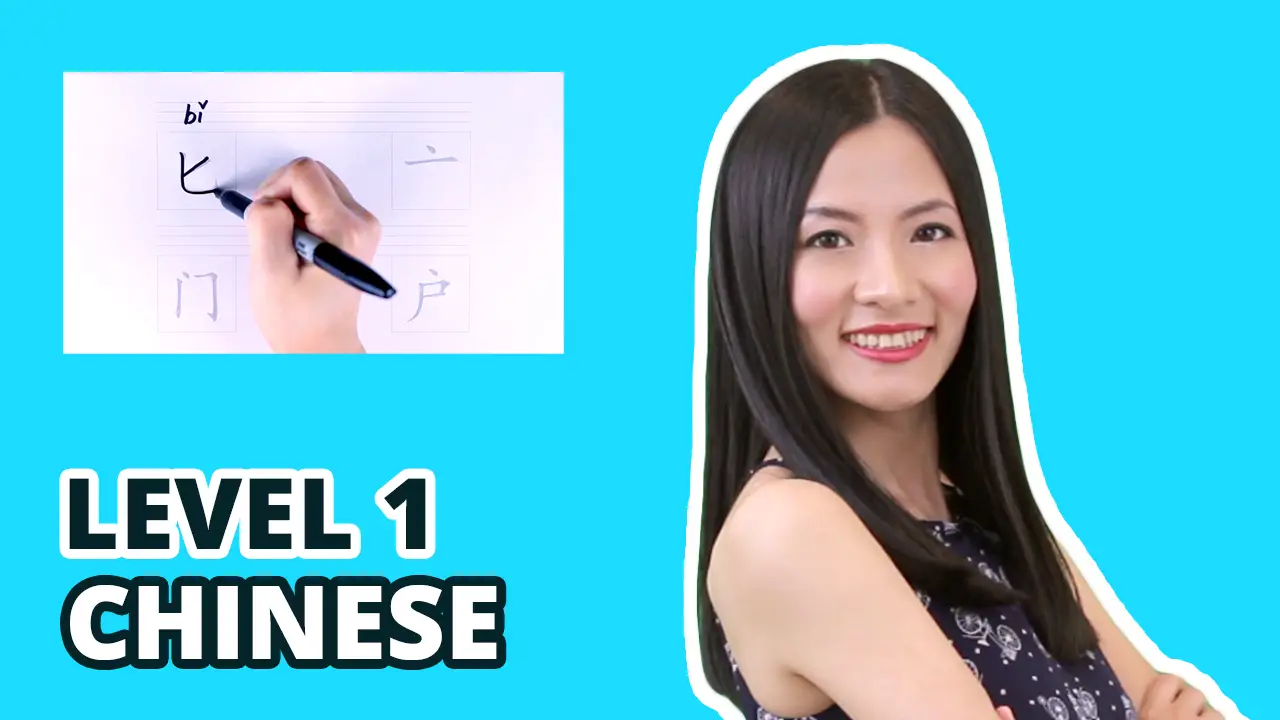Level 1 Lesson 18.1 – When Does the Movie Start?
Ask When in Chinese | Different Shops in Chinese
In this video lesson we'll learn how to ask when in Chinese using "什么时候" and also how to ask when in Chinese more specifically using other Time-related Question Phrases.
- Ask When in Chinese
- Ask When in Chinese more specifically
- 店: different shops in Chinese
- 走: to walk and to leave in Chinese
VOCABULARY
GRAMMAR
Grammar 1: Ask When in Chinese · HSK 1
The most common way to ask *when* in Chinese is to use the question phrase 什么时候 shénme shíhou. 什么 means *what*. 时候 refers to (1) a point in time or (2) a period of time. Together, 什么时候 means when.
To ask when in Chinese, we use this structure:
Subject + 什么时候 + Predicate (+ Object)
For example:
- nǐmen shénme shíhou huí Zhōngguó
你们什么时候回中国?
When are you going back to China? - wǒmen shénme shíhou zǒu
我们什么时候走?
When do we leave?
Grammar 2: Ask When in Chinese More Specifically · HSK 1
Sometimes we want to ask *when* more specifically, such as the time of day, the day of the week, or the date. Below are common time question phrases in Chinese:
- jǐdiǎn 几点 what time
- xīngqījǐ 星期几 what day of the week
- jǐhào / jǐrì 几号 / 几日 what day of the month
- jǐyuè 几月 which month
- nǎnián 哪年 which year
The sentence structure is the same:
Subject + Time Question Phrase + Predicate (+ Object)
For example:
- diànyǐng jǐdiǎn kāishǐ
电影几点开始?
What time does the movie start? - wǒmen xīngqījǐ bú shàng Hànyǔkè
我们星期几不上汉语课?
Which day of the week do we not have Chinese class? - tā jǐhào huí Měiguó
他几号回美国?
What day of the month does he return to the US? - nǐ jǐyuè kāishǐ xué Hànyǔ
你几月开始学汉语?
Which month do you start learning Chinese? - wǒmen nǎnián qù Shànghǎi lǚyóu
我们哪年去上海旅游?
Which year do we go to Shanghai to travel?
Time question phrases can also be combined:
- diànyǐng xīngqījǐ jǐdiǎn kāishǐ
电影星期几几点开始?
On which day and at what time does the movie start? - nǐ jǐyuè jǐhào bú shàngbān
你几月几号不上班?
Which month and which day do you not work?
Grammar 3: 店 – Different Shops in Chinese · HSK 1
In Chinese, 店 diàn means *shop* or *store*, as in 商店. To name different types of shops, we usually use this structure:
Product Name + 店
For example:
- kāfēidiàn 咖啡店 coffee shop
- cháyèdiàn 茶叶店 tea shop
- shūdiàn 书店 bookstore
Note that not all shops follow this pattern.
Grammar 4: 走 – To Walk or to Leave in Chinese · HSK 1
走 zǒu can mean *to walk* or *to leave*, depending on the context. For example:
- wǒ bù xiǎng zǒu
我不想走。
I do not want to walk. / I do not want to leave.
5 Comments
Leave a Reply
You must be logged in to post a comment.

我们间天不走
我爸爸妈妈没走
Bu and mei are used with the same verb?
I believe you meant: 我们今天不走。
From what I understand is that 不 and 没 both can be used with any verb, but mean different things.
我们今天不走。would mean we are not going (present or near future), indicating an intention, while
我们没走。would mean we did not go (past tense), something that has already happened.
Hi Lili,
In the statement
我在妈妈 去年 在 法国旅游
在 indicates in/at France or the continuous aspect of traveling?
Thanks,
Valentin
Please refer to the usage of Adverb 在 in Grammar 3 of Level 1 Lesson 10
Great, thank you very much for the help!